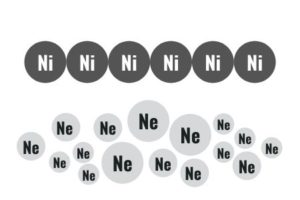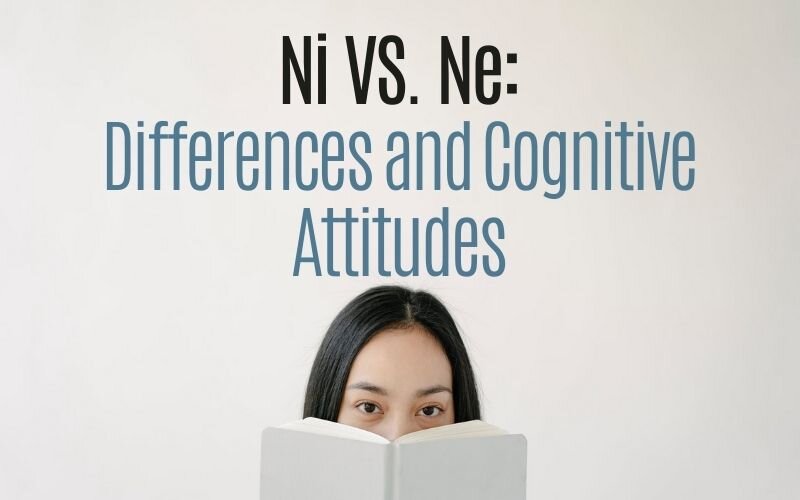“Trust your guts.” When you have exhausted the facts, logical reasoning, and still feel off, your last resort is to say these spirited words.
No wonder people would rely on their instincts because these “guts” are a part of people’s natural intuition. Some are more intuitive than others, while some use it frequently as their guiding factor.
Intuition is often described as a “sixth sense” where people predict future outcomes. Sometimes, they extend their vision to the future based on what’s currently observable. But often, these visions come out as unexplainable due to the absence of logic and conscious reasoning behind them.
How would you explain “you just know” that things will transpire? It sounds mystical, but many personality types use their intuition strongly which led to grasping great visions.
Even Albert Einstein, popularly typed as an INTP, says, “imagination encircles the world.” Curiosity and vision led him to work his way up to his renowned concept, Theory of Relativity.
According to Carl Jung, intuition is a perceiving function where we collect data, recognize patterns, connect the dots, and see possibilities from a wide array of information.
But this type of perception is branched into two functions: introverted intuition and extraverted intuition (Ni. Vs. Ne) which we will discuss further in this post.
What is introverted intuition?
Introverted Intuition (Ni) is a function that helps see theoretical patterns, make sense of abstract ideas, and generate a profound possibility. But what makes it different is that being introverted, Ni solidifies a massive amount of information and reduces them into a more refined and profound concept. Ni is a deductive perceiving function.
What is extroverted intuition?
Extraverted iNtuition (Ne) allows us to find patterns, make sense of abstract ideas, and generate concepts. It’s a forward-looking function where Ne-users can branch out a single idea into multiple possibilities. Ne is an expanding perceiving function.
What’s the Difference between introverted intuition and extraverted intuition?
Here’s how I see Ni and Ne. Picture this.
Ni sees the whole forest and pinpoints the location of the most useful tree. Without looking at any other plants, it goes straight to the tree and studies it for long periods of time. Whereas Ne only sees one tree at a time. It ventures to gather information about every tree. Along the process, it will eventually stumble across the most useful tree.
Introverted intuition (Ni) usually collects the observable information and comes up with a sensible, narrowing, and deep path. Since they have their eyes set on that goal, they gain depth and mastery with their chosen field. One characteristic – especially to people with High Ni – is that they can brush off ideas that don’t help the very core of their chosen path.
Extraverted intuition (Ne), on the other hand, can use a single knowledge or observation and branch it out into multiple possibilities. Ne-users are inclined to find discoveries. They may not have the patience to stick to one idea for years, but such fast-paced shifts of interests and knowledge lead them to learn a wide breadth of information.
It’s worth knowing who your Ni and Ne friends are. Do you have an unorganized overload of thoughts? Then add an Ni-user to the group to help solidify them into a well-organized and sensible plan. But if you’re stuck in a rut and feel like you’re not going anywhere, then bring an Ne-user and you will be caught in an upsurge of original and creative ideas.
The Attitudes of Introverted VS. Extraverted Intuition
Now, let’s talk about the differences between Ni and Ne. Many people get confused between the two because these are both Intuitive functions.
I’m an INFP and have Ne as my auxiliary (2nd) function. Since I’m surrounded by Ni, mostly INFJs, I always wondered how in the world can they stick to their jobs for years when I can’t even make it through a year? Three months in and I’m already fabricating a new path. I thought Intuitives stick together, right? But truly, Ni and Ne don’t project and see visions in the same way.
Going back, I listed the observable traits and attitudes that separate Ni and Ne. I will use my experiences, and what I observed from other Ne-users and compare our attitudes against the Ni-people that I mostly encountered.
Ready? Here we go:
-
Storytelling
This one’s the most observable difference between introverted intuition and extraverted intuition – the storytelling.
From my encounters with Ni-users, mostly INFJ, ENFJ, and INTJ, Ni shares their stories in a linear, yet progressing way. They have this style of telling stories strictly from end to finish.
Not only does Ni love the progress, but mind you, they care for the chronological order of events. When a person uses Ni in their ego stack, they automatically use Se as an extraverted perceiving function.
When they tell a story, it’s almost like watching a movie that starts from the prologue to scene 1, until they reach the ending scene. And when they miss a detail? They backtrack and may start all over again. I had this experience where two Ni-users disrupt each other, trying to pace each other up. Because indeed, they love progression – having to start from a general idea down to the main point – and can be lengthy storytellers.
My father is an INTJ – an Ni-dominant.
Whenever we talk about current events, he will always begin his answers from the scratch. He brings up histories of colonization way back to the 16th century, the culture, and the earliest philosophers until it climbs up to the present time. When he misses a detail in the timeline, he goes back, recollects his memory, and repeats it all over again. Imagine me asking one single question, and he replies with a whole organized, audio-book-like response!

On the other hand, Ne tends to only capture snapshots of ideas, which also gets aided with Si. If they had an incredible plan and wanted to share it with people, they wouldn’t go in-depth with it, but they jump immediately to mention the highlights and most significant parts.
And as an Ne-Si-user myself, I’m the type to be jumpy around my friends and say, “my crush looked me in the eye!” It was a happy crush though. I remember not telling the whole story but reenacting what happened so my friends understand quicker. But I never went into details like how I got there, what he was holding, why I was there, or how we came across in the pathway.
Also, Ne-users may find it hard to stick to their story. They often thrive farther and farther away from the topic. They would ramble on a variety of ideas until they forget what the real question was.
Overall, in the case of story-telling, Ni sees ideas in a linear path and may share a story with extreme detail where you can really draw the picture. On the downside, their stories can be quite lengthy or somehow repetitive. Whereas, Ne is focused on the highlights. One con – their ideas may be vague and infuriating for the lack of details. With Ne, it turns out it’s the listener’s responsibility to ask questions if they wanted to dig deeper.
-
Schedule
Ni-users usually have either a written or mental list of schedules to follow. Just like in storytelling, Ni-users are pretty linear and organized when it comes to their work. Once they made up their mind to finish a certain task today, they are resolved to finish it TODAY.
High Ni – especially Ni-dominants – see schedules as a whole. They don’t just go every day to work without a plan. Instead, they most likely had the whole week planned out! Say, on Monday, they are planning to finish 10 documents and submit them the same day, so on Tuesday, they can proceed with another task. At the end of the week, their work must be done completely so it won’t tamper with other schedules for the following weeks.
On the other hand, here’s how extraverted intuition (Ne) works: Ne follows a more spontaneous schedule. They would clean their rooms in the first hour and then sit down to play video games after 30 minutes. Unlike Ni, Ne-user’s way of planning is knowing that they have to do a task, but not necessarily knowing when to do it.
From my experience as an Ne-user, I know I had to finish at least 2 drafts in a week, do some freelance work, exercise, and go out with friends. I want to do all these, but my timelessness is extreme so I just do it any day I feel like doing it. Every task is in a flexible schedule unless there’s a deadline.
I must say, my “schedule” is scheduled to change at any minute. This is why I always tell people that structure and strict schedule may not be the best solution to become more productive, even more with Ne. While structure can work for others, Ne-users opt for flexibility.
You may like this: 5 Healthful Ways INFPs Overcome Procrastination
-
Sharing plans
Ne love to share their thoughts and get overly excited about the possibilities. If you give one plausible idea to an Ne-user, they respond with overflowing ideas and may react with statements like, “Let’s do this!” or “We should do that!” Surely, even I overwhelm myself with all the plans I want to do at a single time!
While for Ni-users, they usually mention ideas only if it’s a concrete and complete plan. From what I observed, they would only mention their plans once they have taken a step into it.
Ni solidifies their gathered information until it becomes a logical and actionable plan.
That’s why Ni and Ne partnerships are awesome. Ni can solidify the downpour of ideas. Ne extends and expands creativity even in narrow paths.
-
Eye movement
Here’s a telltale sign to differentiate Ni and Ne.
Ni (introverted intuition) is an inward and linear perceiving function. Unlike Ne, it does not refer to broad and widening ideas. This linear way of thinking manifests as a “stare” especially when they’re recollecting ideas.
Whereas to Ne (extraverted intuition), their eye movements tend to perceive outwardly, and recollect fragments of ideas, instead of a progressing path. With this “outward” perception, Ne-users often dart their eyes upward and sweep their eyes from left to right.

-
Forgetfulness
Ni vs Ne, who’s more forgetful? Let’s clear this out.
Ni may be forgetful with experiences that seem insignificant to them, but for things that matter, they have a good grasp of remembering details. The Ni-Se axis allows this close perception of the details in their surroundings. If an Ni speaks to you about an event they’re interested in, it’s actually overwhelming how much detail they can give you, along with the proper order of events.
However, if you ask them questions that interest you but may appear insignificant to them, their keen observation of details mostly decreases and yes, they do appear forgetful.
I told a friend who is an Ni-user, “remember when I balled my eyes out to you at the back of the school building?” she was puzzled. She then let out a chuckle and told me, “Oh gosh, what happened there again?” I didn’t know if I should laugh or not, because I poured my heart out that time and she didn’t remember. Well, dang, that was a decade ago, so I’ll let that slide. Lol.
On the other hand, Ne tends to keep long-time memories. Ne-users don’t care much about the chronological order of events, but rest assured that they have a record of the highlights even way back from their childhood.
The Ne-Si axis help retain memories especially when these moments are associated with the smell, warmth, atmosphere, tensions, and emotions. They may remember what their friends said 10 years ago, how each Christmas went each year, how the cold air felt different that year, or have picture books from childhood embedded in their minds. They are very nostalgic people.
Conclusion
That’s it! These are the differences between introverted intuition and extraverted intuition. I hope this information helps you reorganize your thoughts and understand your thought processes better. As I always said in my previous posts, learning your core helps you identify your strengths and weaknesses.
Hope this helps you differentiate Ni and Ne.
Thanks for reading! 🙂
-M.Mathias
Did you like this post? To show your support, buy me a coffee at Ko-fi! 🙂
You may also like:
- How Does the INFP Mind Work? 4 Cognitive Functions Explained
- The INFP Mind: 6 Best INFP Traits and Hidden Behaviors


Thanks for these precious details!
Glad it can give you insights. Thanks for dropping by! 🙂